13th Symposium - 2022

Program
- April 6
- April 7
- April 8
- April 9
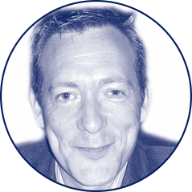
Chairman | Axel Cleeremans
Research Director, Consciousness, Cognition & Computation Group, Université Libre de Bruxelles, Belgium. Scientific interests: consciousness and implicit learning, models of conscious and unconscious cognition, neural network of cognitive processes.
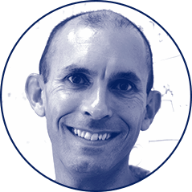
Anil Seth
Professor of Cognitive and Computational Neuroscience, University of Sussex, and Founding Co-Director of the Sackler Centre for Consciousness Science, UK. Co-Director of the Canadian Institute for Advanced Research Azrieli Program in Brain, Mind, and Consciousness. Editor-in-Chief of the Neuroscience of Consciousness (Oxford University Press) and Wellcome Trust Engagement Fellow. Scientific interests: the understanding of the biological basis of consciousness by bringing together research across neuroscience, mathematics, artificial intelligence, computer science, psychology, philosophy and psychiatry.
We have eyes to see, ears to hear, and noses to smell - but how do we perceive the flow of time? I will explore the perception of time from the perspective of the brain as a “prediction machine”, presenting a series of studies from our laboratory that have been led by Warrick Roseboom. In our view, brains do not mark off time by the ticking of an ‘internal clock’. Our perception of time is instead generated by brain mechanisms involved in perception of things other than time itself. I will illustrate this view with a combination of experiments, computational models, and brain imaging data - setting these studies in the broader context of predictive perception and the Bayesian brain. We will see how to build machines that perceive time in a human-like way, and how time itself is not just one thing but many things.
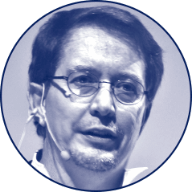
Moderator | Etzel Cardeña
Thorsen Professor of Psychology and Director of the Center for Research on Consciousness and Anomalous Psychology (CERCAP), Department of Psychology, Lund University, Sweden. Scientific interests: the psychology of anomalous experiences/non-ordinary mental expressions, including parapsychological phenomena; neurophenomenology of hypnosis, meditation and dissociation; stream of consciousness.
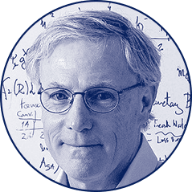
Orfeu Bertolami
Professor of Physics, Faculty of Sciences, University of Porto, Portugal. Scientific interests: astroparticle physics, cosmology, classical and quantum gravity, applied and fundamental physics in space, earth system physics.
In contemporary physics space and time are intertwined entities so that kinematic and dynamical quantities can be expressed in the four-dimensional space-time. This formulation seems to contradict our every-day experience and perception, according to which space and time are distinct entities. In our lecture, we shall discuss these contradictory views and analyse the fundamental property of time, namely that it evolves from the past to the present, from the present to the future.
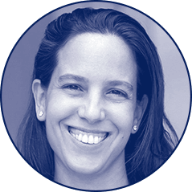
Jimena Canales
Writer and Professor at the Graduate College, University of Illinois, Urbana-Champaign, USA. Author of “A Tenth of a Second” and “The Physicist and the Philosopher: Einstein, Bergson, and the Debate That Changed Our Understanding of Time”. Scientific interests: history of science.
Debates about time have left “a hole at the heart of physics” (Scientific American, Sept 2002) from which the discipline has yet to recover. The main problem is usually traced to Einstein’s theory of relativity, to the notion of a “block universe,” and to his famous claim that “the distinction between the past, present and future is only a stubbornly persistent illusion.” While some scientists have tried to incorporate elements of our experience of time into our explanations of the universe, others continue to claim that our sense of time is simply illusory. Can these debates be solved by science alone or are they inescapably philosophical, historical and cultural? My talk will explore the origins of this persistent quandary by focusing on the relation of physics to philosophy, history and the humanities.
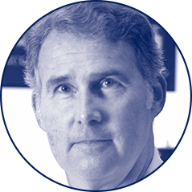
Daniel Sheehan
Professor of Physics, University of San Diego, USA. Scientific interests: plasma physics, the foundations of thermodynamics, energy technology, nanotechnology, consciousness, and the physics of time and retrocausation.
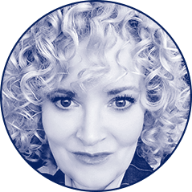
Patricia Cyrus
Siemens Energy, Orlando, USA. Has participated in multiple experimental studies over the last 20 years in the field of remote viewing (RV), often collaborating with Dale Graff, most recently in demonstrations of precognitive RV.
The fundamental equations of physics are time-symmetric, that is, they equally admit time-forward (retarded) and time-reversed (advanced) solutions. Our personal experience of time and its unfolding in natural processes, however, suggest a unidirectional `arrow of time.’ This unidirectionality is usually attributed to the second law of thermodynamics, although other processes are probably at play also. The best documented potential exceptions to time’s unidirectionality is human precognition (e.g., presentiment and premonition) in which information about the future is acquired in the present. In this talk, we will attempt to explain precognition via retrocausation within the current paradigm of physics, starting from the following three assumptions: a) fundamental physical process are time symmetric such that both retarded and advanced potentials are present; b) the second law of thermodynamics operates in both temporal directions (if (a) is true, then (b) should follow); and c) individual conscious experiences have unique quantum correlates (e.g., wavefunctions). While these premises may appear controversial, in fact, they honor physical theory as it formally appears in its equations, taking them more seriously than is typical of the scientific community. Our analysis indicates it may be possible to construct non-sentient devices that demonstrate precognitive effects, thereby opening the phenomenon to more systematic study.
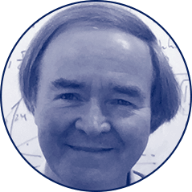
Bernard Carr
Professor of Mathematics and Astronomy, Queen Mary, University of London, UK. For his PhD he studied the first second of the Universe, working under Stephen Hawking. Former President of the Society for Psychical Research and current President of the Scientific and Medical Network. Scientific interests: cosmology and astrophysics - early universe, dark matter, black holes and the anthropic principle; the role of consciousness in physics - he is developing a new psycho-physical paradigm, linking matter and mind, which accommodates both normal and anomalous mental experiences.
The problem of time involves an overlap between physics, philosophy, psychology and neuroscience. My talk will discuss the role of time in physics but also emphasize that physics may need to expand to address issues usually regarded as being in the other domains. I will first review the mainstream physics view of time, as it arises in Newtonian theory, relativity theory and quantum theory. I will then discuss the various arrows of time, the most fundamental of which is the passage of time associated with consciousness. I will argue that this goes beyond both relativity theory and quantum theory, so that one needs some new physical paradigm to accommodate it. A new paradigm is required anyway to describe quantum gravity and this may elucidate the nature of both time and consciousness.
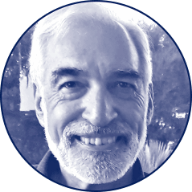
Mário Simões
Retired Professor of Psychiatry and Consciousness Sciences and Director of LIMMIT - Laboratory of interaction Mind-Matter with Therapeutic Intention, Faculty of Medicine of Lisbon, Portugal. Scientific interests: psychology and psychophysiology of altered states of consciousness, ethnomedicine, human exceptional experiences and psychology and spirituality.
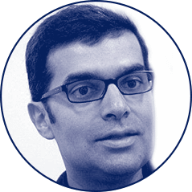
Moderator | Miguel Castelo-Branco
Professor of Biostatistics and Visual Sciences and Director of CIBIT at ICNAS, University of Coimbra, Portugal. Scientific interests: sensory and perceptual neuroscience, and neurobiology of decision-making, social cognition and reward in health and disease.
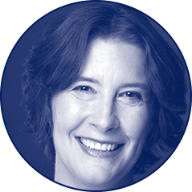
Julia Mossbridge
Affiliate Professor, Department of Physics and Biophysics, University of San Diego, CA, and Fellow, Institute of Noetic Sciences, Petaluma, USA. 2014 recipient of the Charles Honorton Integrative Contributions Award from the Parapsychology Association. Scientific interests: the relationship between psychological and physical time, unconscious access to future events, training people to improve their future orientation.
Physical systems are generally time symmetric and retrocausal effects have been demonstrated in quantum systems. However, we normally assume that at least for biological and psychological systems, events in what we call the future cannot produce influences in what we call the past. This assumption seems ripe for questioning, given data showing the biological systems - so far, humans and birds - seem to pre-spond reliably to events produced by random number generators. This talk will be nearly evenly divided between an overview of the evidence and a discussion of potential mechanisms.
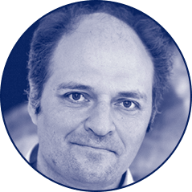
Michael Brecht
Professor of Systems Neuroscience, Humboldt University Berlin. Coordinator of the Bernstein Center for Computational Neuroscience Berlin, Germany. Scientific interests: memory formation, social touch, social neuroscience and biological approaches to brain function.
According to Hamilton’s inclusive fitness hypothesis, kinship is an organizing principle of social behavior. There is abundant behavioral evidence supporting this hypothesis, including the ability to recognize kin and the adjustment of behavior based on kin preference with respect to altruism, attachment and care for offspring in insect societies. Despite the fundamental importance of kinship behavior, the underlying neural mechanisms are poorly understood. We repeated behavioral experiments originally performed by Hepper on behavioral preference of rats for their kin. Consistent with Hepper’s work, we find a developmental time course for kinship behavior, where rats prefer interactions with their siblings at young ages and express non-sibling preferences at older ages. In probing the brain areas responsible for this behavior, we find that aspiration lesions of the lateral septum but not control lesions of cingulate cortices eliminate the behavioral preference in young animals for their siblings and in older rats for non-siblings. We then presented awake and anaesthetized rats with odors and calls of age- and status-matched kin (siblings and mothers) and non-kin (non-siblings and non-mothers) conspecifics, while performing in vivo juxta-cellular and whole-cell patch-clamp recordings in the lateral septum. We find multisensory (olfactory and auditory) neuronal responses, whereby neurons typically responded preferentially but not exclusively to individual social stimuli. Non-kin-odor responsive neurons were found dorsally, while kin-odor responsive neurons were located in ventrally in the lateral septum. To our knowledge such an ordered representation of response preferences according to kinship has not been previously observed and we refer this organization as nepotopy. Nepotopy could be instrumental in reading out kinship from broadly tuned responses and in the generation of differential behavior according to kinship. Thus, our results are consistent with a role of the lateral septum in organizing mammalian kinship behavior.
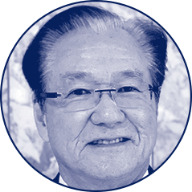
Joseph S. Takahashi
Professor and Chair, Department of Neuroscience, Howard Hughes Medical Institute, University of Texas Southwestern Medical Center, Dallas, USA. Scientific interests: genetics and molecular neuroscience of circadian clocks in mammals, genetic basis of behaviour, healthy aging and longevity.
Genetic analysis of circadian behavior in mice has revealed that the molecular basis of circadian clocks involves an autoregulatory transcriptional network that oscillates with a 24-hour periodicity. In mammals, the discovery of “clock genes” led to the realization that circadian clocks are cell autonomous and are expressed in the majority of cells and tissues in the body. The master circadian pacemaker located in the hypothalamic suprachiasmatic nucleus sits at the top of a hierarchy of oscillators in the body, but peripheral oscillators can and do respond to more proximal signals such as nutrients and metabolites. Thus, the “circadian system” in mammals is a multi-oscillatory hierarchy. The lecture will discuss recent discoveries on the neuronal network in the suprachiasmatic nucleus. In addition to controlling the timing of behavior and physiology, the clock gene network interacts directly with many other pathways in the cell. These include metabolism, immune function, cardiovascular function and cell growth to name a few. With respect to metabolism, the timing of nutrient consumption is critical, and we and others have shown that restricting the timing of feeding has many health benefits. The lecture will also discuss the role of time-restricted feeding as a critical factor for aging, health span and longevity.
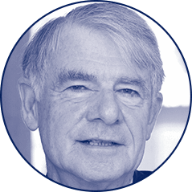
Wolf Singer
Professor, studied Medicine in Munich and Paris, obtained his MD and PhD in Munich. Director emeritus at the Max Planck Institute for Brain Research, Frankfurt, Germany. Founding Director both of the Frankfurt Institute for Advanced Studies (FIAS) and of the Ernst Strüngmann Institute for Neuroscience (ESI) and Director of the Ernst Strüngmann Forum. Scientific interests: the neuronal substrate of higher cognitive functions.
Curiously, organisms lack specialized receptor systems for the perception of the fundamental dimensions in which they evolve, for space and time. These categories, considered by many as constitutive properties of reality, are constructs generated by cognitive processes in the brain. These constructs are inferred from the evaluation of spatial relations among objects in case of space and of temporal relations among events in the case of time. The evaluation of temporal relations is of immense importance for organisms as it allows them to derive predictions for future conditions by discovering statistical contingencies in the outer world and causal dependencies. Similarly important is the ability to measure the duration of elapsing time in order to structure behavior. This in turn does require parsing of the continuous flow of time into units amenable to some counting process. The first part of the presentation will be devoted to neuronal mechanisms underlying the detection, encoding and storage of relations. It is suggested, that ultimately all relations - spatial, temporal and semantic - have to be encoded in the brain as temporal relations. The second part will focus on mechanisms allowing for the parsing of time. The emphasis will be on the crucial role that oscillations play in providing the time frame for the definition of relations, for the coordination of distributed processes in the brain and for the organization of complex behavior. Finally, and this part is bound to remain speculative at the present stage of knowledge, the apparent paradox will be discussed that the perception of elapsed and remembered time is strongly dependent on context while the reproduction of temporally structured sequences can be extremely precise.
W1 - The physics and metaphysics of time | Room Auditorium (there will be simultaneous translation)

Moderator | Axel Cleeremans
Research Director, Consciousness, Cognition & Computation Group, Université Libre de Bruxelles, Belgium. Scientific interests: consciousness and implicit learning, models of conscious and unconscious cognition, neural network of cognitive processes.
Invited presenters | Orfeu Bertolami, Bernard Carr, Daniel Sheehan & Patricia Cyrus
How should we think about time? Does contemporary physics provide the correct conceptual framework to understand this fundamental dimension of our existence? Or should we reinvent physics to account for our experience of time? Exploring the boundaries of our knowledge about this most elusive phenomenon, this workshop will provide an opportunity for the audience to take part in the discussion with four prominent scientists who have approached the physics and metaphysics of time from different directions.
W2 - Precognition and anomalous experiences | Room Conferências (without translation)

Moderator | Miguel Castelo-Branco
Professor of Biostatistics and Visual Sciences and Director of CIBIT at ICNAS, University of Coimbra, Portugal. Scientific interests: sensory and perceptual neuroscience, and neurobiology of decision-making, social cognition and reward in health and disease.
Invited presenter | Julia Mossbridge
Controlled precognition is a subset of remote viewing in which the target is known by no one until after the viewing session is complete. Therefore, it is precognitive (knowing information ahead of time that cannot be deduced by existing facts) and controlled (the information is not available to anyone else and therefore cannot be unconsciously communicated). In this workshop, you will learn how to practice controlled precognition. You will be led through 3-5 exercises to help start off your new practice or enhance your existing practice, learn how to use random number generators to select targets after their controlled precognition session has completed, and discover how to strengthen the relationship between the unconscious and conscious minds.
W3 - The experience of time in altered states of consciousness | Room Medicoteca (without translation)

Moderator | Etzel Cardeña
Thorsen Professor of Psychology and Director of the Center for Research on Consciousness and Anomalous Psychology (CERCAP), Department of Psychology, Lund University, Sweden. Scientific interests: the psychology of anomalous experiences/non-ordinary mental expressions, including parapsychological phenomena; neurophenomenology of hypnosis, meditation and dissociation; stream of consciousness.
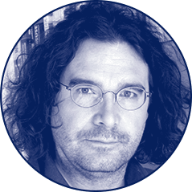
Moderator | Marc Wittmann
Research Fellow, Institute for Frontier Areas of Psychology and Mental Health, Freiburg, Germany. Scientific interests: the perception of time in everyday fluctuations of consciousness as well as during altered states of consciousness such as induced through meditation, ganzfeld, floating tank and hallucinogens; neurophysiological and psychological explorations of how subjective time is related to cognition, emotion and body states.
Invited presenters | Etzel Cardeña, Damisela Linares Gutiérrez & Marc Wittmann
W4 - Perception and memory of time | Room Braga (without translation)
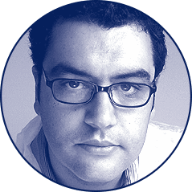
Moderator | Rui Costa
Professor of Neuroscience and Neurology, Columbia University, and Director and CEO of Columbia’s Zuckerman Institute, New York, USA. Investigator at the Champalimaud Centre for the Unknown, Neuroscience Programme, Lisbon, Portugal. Scientific interests: molecular, cellular and systems mechanisms of action generation, sequence and skill learning, goal-directed actions versus habits, across-level approach to study cognitive and sensorimotor disorders (PD, OCD, and autism).
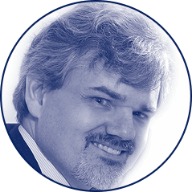
Moderator | Rainer Goebel
Professor of Cognitive Neuroscience, Faculty of Psychology and Neuroscience, Maastricht University, The Netherlands. Founding director of the Maastricht Brain Imaging Centre (M-BIC). Scientific interests: neuronal representations in the brain and how they are processed to enable specific perceptual and cognitive functions, neural correlates of visual awareness, clinical applications in brain computer interfaces (BCIs) and neurofeedback studies.
Invited presenter | Dean Buonomano
Humans are capable of telling time over a wide range of scales, ranging from a few milliseconds to days and beyond. In this workshop we will provide demonstrations of how scientists estimate the precision of the brain’s clocks, and examples of temporal illusions. Demonstrations will include: 1) estimating the interval discrimination threshold, that is, how precise the brain’s clocks are; 2) illusions of time estimation; and 3) examples of how the interaction between language and the representation of time.

Moderator | Rainer Goebel
Professor of Cognitive Neuroscience, Faculty of Psychology and Neuroscience, Maastricht University, The Netherlands. Founding director of the Maastricht Brain Imaging Centre (M-BIC). Scientific interests: neuronal representations in the brain and how they are processed to enable specific perceptual and cognitive functions, neural correlates of visual awareness, clinical applications in brain computer interfaces (BCls) and neurofeedback studies.
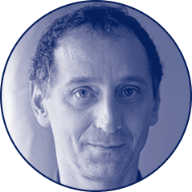
Dean Buonomano
Professor of Neurobiology and Psychology, University of California, Los Angeles, USA. Author of “Your Brain is a Time Machine”. Scientific interests: neural basis of timing, neurocomputation, neural dynamics, and learning and memory.
Time lies at the center of a perfect storm of unsolved scientific mysteries: consciousness, free will, relativity, and quantum gravity. The problem of time is particularly fundamental in neuroscience because the brain is in a sense a time machine: it tells time, attempts to predict the future, allows us to engage in mental time travel, and creates the subjective conscious feeling of temporal flow-an experience seemingly at odds with an interpretation of the laws of physics. Because of the fundamental importance of time, the brain can tell time across a broad temporal range: from milliseconds to days. But in contrast to the clocks on our wrists, which rely on the same mechanisms to tell time across this scale, the brain uses different mechanisms to tell time across scales. My talk will describe how the brain tells timeand explore the interaction between the neuroscience and physics of time.
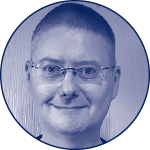
Chris Roe
Professor of Psychology, and Director of the Centre for Psychology & Sociology, University of Northampton, UK. Past-President of the Society for Psychical Research and Parapsychological Association, and past chair of the British Psychological Society Transpersonal Psychology Section. Scientific interests: understanding the nature of anomalous experiences, including experimental approaches to test claims for extrasensory perception and psychokinesis, particularly where they involve psychological factors.
In Lewis Carroll’s Through the Looking-Glass, the White Queen advises Alice to practice believing in impossible things. In a landmark 2011 paper published in the Journal of Personality and Social Psychology, Daryl Bem, Professor Emeritus of Psychology at Cornell University, reported 9 tests of precognition including two tests of the White Queen’s claim that the future can be “remembered”. These studies examined whether rehearsing a set of words makes them easier to recall - even if the rehearsal takes place after the recall test is administered. The paper reported results supporting the hypothesis of precognition – that performance on a current experimental task was seemingly influenced by experience of a future task. This presentation will discuss Bem’s landmark studies, including critical reactions to his work, subsequent systematic replication efforts, and the impact of this area of research on our understanding of anomalous experiences.
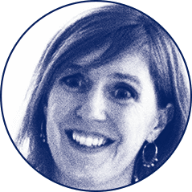
Jennifer Coull
Senior CNRS Research Scientist, Laboratory of Cognitive Neurosciences, CNRS & Aix-Marseille University, France. Scientific interests: functional neuroimaging & psychopharmacology of timing (temporal expectations and duration judgements), development of the “sense” of time in childhood, timing in schizophrenia, functional neuroimaging & psychopharmacology of attention and arousal.
The perception that time is elapsing depends upon memory as well as incoming sensory evidence. As JJ Gibson eloquently observed “time is a ghost of the events of the world”. Put more prosaically, this means we can simply conceive of time as a mental construct. So if time is a mental construct, we should try and identify where it is represented in the brain. Functional neuroimaging techniques have consistently identified a network of regions, including Supplementary Motor Area, basal ganglia, and prefrontal cortex, that are activated when participants make judgements about the duration of currently unfolding events. In parallel, left parietal cortex and cerebellum are activated when participants predict when future events are likely to occur. But why should time be represented in regions of the brain that have more traditionally been implicated in motor function? One possibility is that we learn about time through action. In other words, action could provide the functional scaffolding for learning about time in childhood, explaining why it has come to be represented in motor circuits of the adult brain.

Marc Wittmann
Research Fellow, Institute for Frontier Areas of Psychology and Mental Health, Freiburg, Germany. Scientific interests: the perception of time in everyday fluctuations of consciousness as well as during altered states of consciousness such as induced through meditation, ganzfeld, floating tank and hallucinogens; neurophysiological and psychological explorations of how subjective time is related to cognition, emotion and body states.
We are aware of the passage of time and we perceive the duration of events. The neural basis for the processing of time, however, is still debated. Based on recent conceptual and empirical findings a framework is presented suggesting that physiological changes of the body, the basis of our feeling states, form an internal signal to encode the duration of external events. Neuroimaging studies have shown how increasing neural activity in the posterior insular cortex is related to the processing of temporal intervals in the multiple-seconds range. Given the close connection between the insula and ascending body signals, it is possible that the accumulation of physiological changes over time constitutes our experience of duration. On a basic level, the bodily self, as created by the continuous input from the body, is the functional anchor of phenomenal self-awareness – and of subjective time. The entanglement of self-reflective consciousness, emotion and body awareness with the experience of time is prominently disclosed in the variations of everyday states of consciousness such as in experiences of flow and of boredom. The experience of time and of the self is more strongly modulated in altered states of consciousness (ASC) induced with different psychological or psychopharmacological induction techniques, but also as felt in certain neurological and psychiatric conditions. In meditative states, as experience in the floating tank, or under the influence of psychedelic drugs a peak experience can occur which later is described as culminating in the oceanic feeling of ‘selflessness’ and ‘timelessness’. Related to psychopathological conditions, many individuals with depression, anxiety, and drug dependence show a hyper-awareness of the self and of time. The core features of ASC are thus antithetical to these psychiatric symptoms. Research is accumulating on positive effects of meditation, floating tank exposure, and the medically controlled use of psychedelic substances on psychopathological symptoms. In my talk, the body of work on the intricate relationship between the bodily self and subjective time will be discussed. Research on subjective time will eventually resolve the still open question of how time consciousness is related to the physiology of the body and brain. My conceptualization allows for an understanding of everyday time experience as well as of peak experiences in ASC. It may even help elucidate the mechanisms of successful treatment of psychiatric patients as witnessed over recent years.
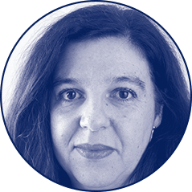
Moderator | Teresa Firmino
Graduated in Social Communication, NOVA University of Lisbon, Portugal. Science journalist at the Portuguese newspaper “Público”, since 1992. In 2008/2009, she has studied science journalism with a Knight Science Journalism Fellowship at Massachusetts Institute of Technology (MIT), USA. Since 2012, she has been the science editor of “Público”. She published three books of scientific dissemination. In 2008 she was awarded an honorary mention for “Scientific Journalism” by the Ilídio Pinho Foundation. In 2012, she received the “Journalism Award” of the Portuguese League Against Cancer and in 2017 the “Ciência Viva Montepio Media Award”.




